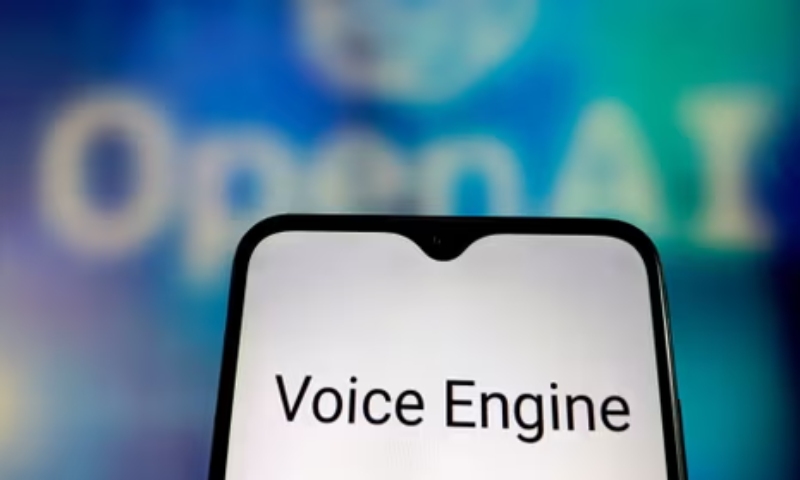“Voice Engine,” a voice-cloning tool that adopts a cautious approach to minimize misuse and safeguard against the growth of audio fakes, was recently unveiled by OpenAI.
The San Francisco-based corporation has emphasized how urgent it is to address the serious risks associated with producing speech that sounds like human speech, particularly during election seasons when there is a higher chance of dishonesty.
A small-scale test described in OpenAI’s blog post showed how the Voice Engine model could mimic a person’s speech from a just 15-second audio clip. The company is collaborating with a range of stakeholders, including government agencies, media outlets, representatives from the entertainment industry, educators, and civil society organizations, in light of the concerns surrounding the misuse of AI-powered technologies, particularly in political campaigns and elections. The purpose of this collaboration is to gather feedback and ensure that the tool is developed and deployed responsibly.
Given the abundance of low-cost, easily-usable, and difficult-to-trace voice cloning techniques, OpenAI has taken a cautious stance, citing worries about the possibility of misinformation campaigns. In order to reduce the possibility of artificial voice modification, the company recognizes that strict security measures are required before a wider deployment of the Voice Engine.
This revelation comes after an incident in which a political consultant connected to a Democratic presidential campaign acknowledged planning a robocall during the primary elections that was supposed to be a famous political figure. These incidents demonstrate how urgent it is to combat the threat posed by deepfake disinformation produced by AI, not only in significant political contests like the 2024 presidential election but also in other international elections.
In order to ensure transparency, partners testing Voice Engine have committed to following stringent rules, such as getting express approval from the people whose voices are being mimicked and revealing when AI-generated voices are being used. To further ensure user safety, OpenAI has added watermarking to Voice Engine audio to identify its source and proactive monitoring to identify usage trends and possible abuse.
Given the delicate nature of events like as elections, OpenAI’s cautious approach to the development and application of voice engines is indicative of its dedication to tackling the ethical and security issues surrounding AI-powered voice cloning technologies. The organization hopes to reduce the dangers of malicious exploitation while encouraging responsible innovation in the field of artificial intelligence through cooperation with a variety of partners and the deployment of strong security measures.


